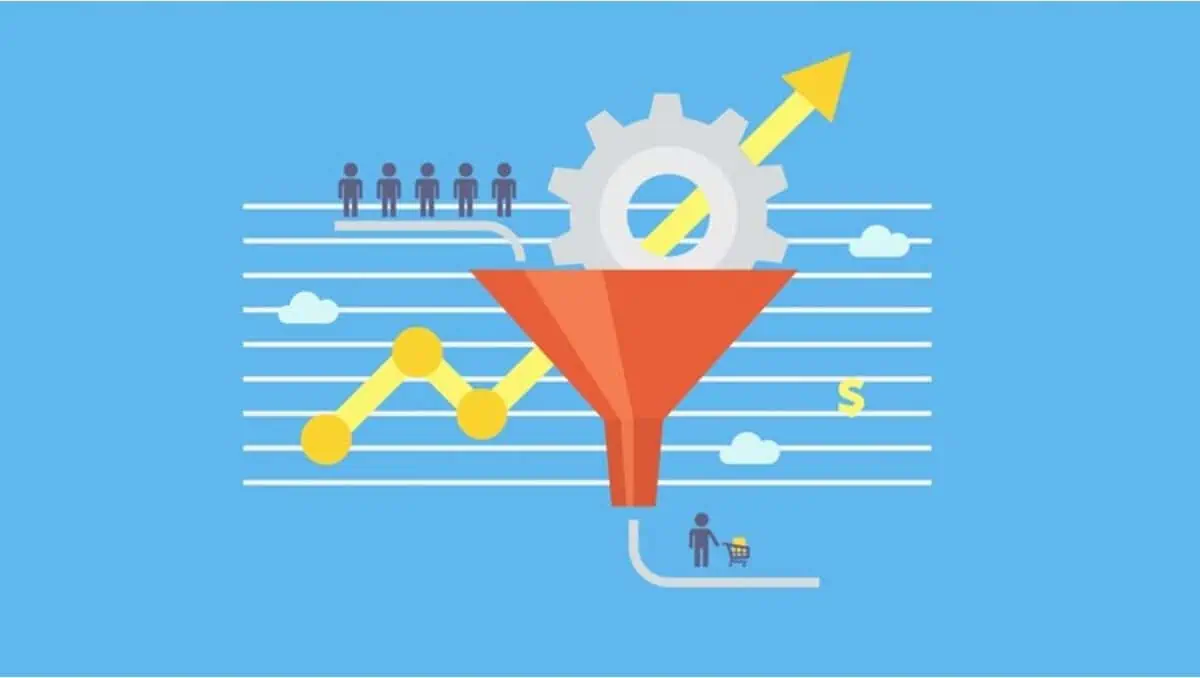The supply chain’s touch points are the unseen threads that weave through the fabric of a transaction, connecting promises made in a glossy brochure to the tangible delivery of products.
Yet, despite this crucial role, the supply chain often operates in the shadows of customer-centric conversations. This oversight can lead to missed opportunities for synergy and collaboration.
Herein lies the power of sales funnels—a strategic framework that extends beyond the realm of sales and marketing to encompass the entire customer journey, including the often-neglected supply chain touch points.
Sales funnels, when thoughtfully constructed, provide a holistic view of the customer experience, acknowledging that the journey doesn’t end with a successful sale but continues through the logistics and delivery phase.
By incorporating supply chain touch points into the funnel, sales and marketing professionals can bridge the gap between promise and delivery, ensuring a seamless and gratifying experience for customers from the first click to the final delivery. In doing so, they not only enhance customer satisfaction but also unlock the potential for collaborative excellence across the entire business ecosystem.
Sales Funnels Impact Supply & Chain
Implementing a well-structured sales funnel can significantly contribute to the efficiency of the supply chain and foster overall sales growth. Here are six tips on how sales funnels play a crucial role in this dynamic:
Enhanced Visibility and Collaboration
Sales funnels provide a comprehensive view of the customer journey, extending from initial interest to post-purchase interactions. This visibility allows both sales and supply chain teams to collaborate more effectively, aligning their efforts to meet customer expectations seamlessly.
Anticipation of Demand
By analyzing data within the sales funnel, businesses can better anticipate customer demand. This foresight enables the supply chain to proactively adjust inventory levels, production schedules, and distribution strategies, reducing the risk of stockouts or excess inventory.
Customized Communication
Tailoring communication throughout the sales funnel ensures that customers receive relevant and timely information. This approach extends to the supply chain, where personalized updates on order status, shipping details, and delivery times enhance the overall customer experience.
Optimized Inventory Management
A well-designed sales funnel facilitates more accurate demand forecasting. This, in turn, allows the supply chain to optimize inventory levels, minimizing carrying costs while ensuring products are readily available to meet customer demand, thereby contributing to overall sales growth.
Efficient Order Fulfillment
The sales funnel guides the supply chain in understanding the urgency and specific requirements of each order. This insight streamlines order fulfillment processes, helping to prioritize shipments and allocate resources efficiently, ultimately enhancing customer satisfaction and loyalty.
Feedback Loop for Improvement
A sales funnel serves as a valuable feedback loop for continuous improvement. Analyzing customer interactions and feedback provides insights that can be shared with the supply chain. This collaborative approach allows for adjustments in logistics, packaging, and delivery processes, contributing to a more refined and customer-centric supply chain.
Conclusion
By leveraging the insights gained from the sales funnel, businesses can optimize their supply chain processes, enhance customer satisfaction, and drive overall sales growth in a cohesive and strategic manner.

